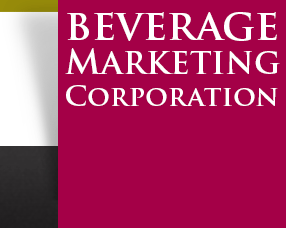Press Release: U.S. Liquid Refreshment Beverage Market Retail Dollars Dipped and Volume Growth Slowed in 2020, Reports Beverage Marketing Corporation
5/26/2021
U.S. LIQUID REFRESHMENT BEVERAGE MARKET RETAIL DOLLARS DIPPED AND VOLUME GROWTH SLOWED IN 2020, REPORTS BEVERAGE MARKETING CORPORATION
***
Covid-19 pandemic hit certain segments harder than others
New York, NY, May 2021: U.S. liquid refreshment beverage volume grew again in 2020, albeit by a rather slow 0.5%, while retail sales declined by 1.7%, according to newly released preliminary data from Beverage Marketing Corporation. While the covid-19 pandemic may not have been the only factor, it was certainly the main one as consumers spent more time at home, which had a huge impact on segments with historically large on-premise consumption.
Overall, liquid refreshment beverage volume topped 34.5 billion gallons in 2020. Retail sales dipped from $186.1 billion in 2019 to $182.8 billion, largely because restaurants, bars, stadiums, theaters and other on-premise venues were closed or restricted for much of the year. In this unusual environment, certain segments, like bottled water and niche segments, continued to grow by both measures, while others, such as carbonated soft drinks, registered significant declines.
While carbonated soft drinks continued to account for four of the five top beverage brands by volume, coronavirus conditions resulted in declines in both volume and retail dollars. (In several previous years, volume contracted but sales remained on an upward trajectory). Volume was 11.6 billion gallons, down from 12.1 billion gallons in 2019. Coca-Cola and Pepsi Cola retained their usual first and second positions among the 10 leading beverage trademarks in 2020, with Dr Pepper and Mountain Dew claiming fourth and fifth place. Dr Pepper managed modest volume growth during the year, but other leading brands (including sixth place Sprite) registered volume losses.
In contrast, bottled water, which topped carbonated soft drinks as the number-one beverage by volume several years earlier, grew again in 2020, and it may have seen increased demand during the pandemic, especially early on when consumers loaded up on essentials like packaged water. In addition, the category's core characteristics — convenient, healthful, natural and calorie-free — enduringly appeal to U.S. consumers. Volume enlarged by more than 4% and retail sales advanced by almost 5%. Bottled water had four entries among the leading trademarks in 2020, but only one of them grew as consumers turned to higher-end or value-priced brands.
Though still comparatively small in size, smaller niche segments once again advanced more robustly than most traditional mass-market ones. With regards to both volume and dollars, ready-to-drink (RTD) coffee and sports beverages in particular moved forcefully in 2020. RTD coffee experienced double-digit growth rates for both volume and retail dollars. Sports beverage volume and dollars both grew at rates approaching 6%, and Gatorade (including all brand variations) became the third largest liquid refreshment beverage trademark with nearly 1.3 billion gallons. Energy drinks and value-added water also outperformed the overall market. (Despite their growth, no energy drink, RTD coffee or value-added water brand ranked among the leading trademarks by volume. No fruit beverage brand did either.)
Fruit beverages, which had undergone shrinkage in years prior to the pandemic, declined in both retail dollars and volume in 2020. So did RTD tea, which, like carbonated soft drinks, has a significant on-premise presence.
Four companies accounted for all of the leading refreshment beverage trademarks. PepsiCo had four brands. Coca-Cola had three while Nestlé Waters North America (NWNA) had two and Keurig Dr Pepper had one. (Next year's list is sure to look different since Nestlé sold most of its North American water business, including its brands ranking in the top 10 refreshment beverages of 2020.)
"Given the trying circumstances, the beverage market actually performed reasonably well," said Michael C. Bellas, chairman and CEO, Beverage Marketing Corporation. "Given its characteristic resilience and ability to adapt to change, it will surely see brighter days post-pandemic."
New York City-based Beverage Marketing Corporation is the leading consulting, research and advisory services firm dedicated to the global beverage industry.



###
